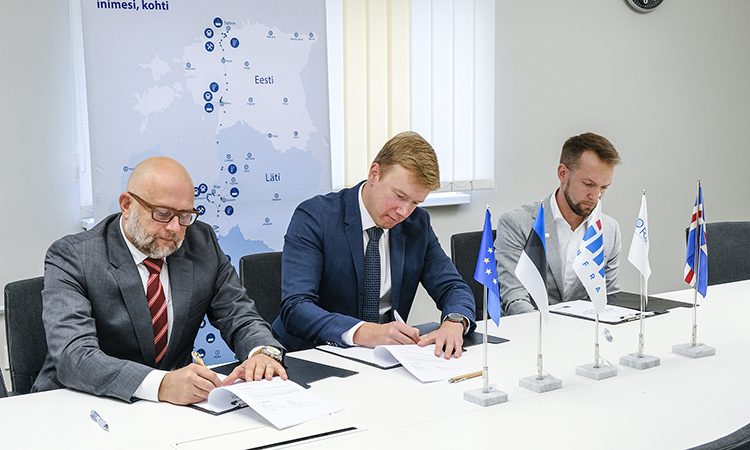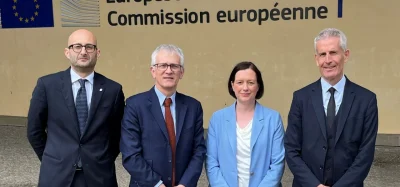Rail Baltica project advances with new construction contract on Estonian segment
Posted: 11 November 2024 | Global Railway Review | No comments yet
Rail Baltica advances with a €67.2 million contract to begin construction on an 8.65km segment between Kangru and Saku, marking a key milestone in the development of Estonia’s high-speed rail link.


Credit: Rail Baltica
Rail Baltic Estonia and INF Infra, a subsidiary of the Infortar group, have announced that they have signed a contract to initiate the construction of an 8.65km main line segment between Kangru and Saku. This development marks a significant milestone as it brings the entire Rail Baltica passenger mainline in Estonia’s Harjumaa region into the construction phase.
The contract covers a key portion of the Harjumaa segment, which will take the high-speed railway through the Männiku bog and include infrastructure for pedestrians and cyclists, such as the Kivitee pedestrian bridge and the Saunasilla underpass. Environmental considerations are central to the project as it traverses the Männiku bog, with design measures aimed at preserving the natural ecosystem.
Anvar Salomets, Chairman of the Board at Rail Baltic Estonia, said: “The start of construction on the Kangru-Saku segment is an important milestone for the Rail Baltica project. With this contract, we now have 73km covered or under construction in Estonia, over one-third of the 213km Rail Baltica mainline in the country.”
Valued at €67.2 million, the project segment is set to continue through February 2028. According to the interim timeline, by the end of 2025, at least 3km of mainline embankment – including the Kivitee bridge and a pedestrian path – are expected to be complete. By late 2026, 6km of embankment should be finished, with full segment completion targeted for early 2028.
Robert Sinikas, a member of the management board at INF Infra, said: “Constructing the railway through the Männiku bog is a significant challenge. To minimise environmental impact, we plan to use highly innovative embankment solutions that have not yet been applied in Estonian infrastructure construction. These planned solutions are significantly more eco-friendly than traditional embankment construction methods.”
The Rail Baltica project, aiming to establish a high-speed rail connection between Estonia, Latvia, Lithuania and broader Europe by 2030, seeks to foster regional cooperation, enhance passenger and freight transport, as well as support sustainable, eco-friendly transportation across the Baltics.








